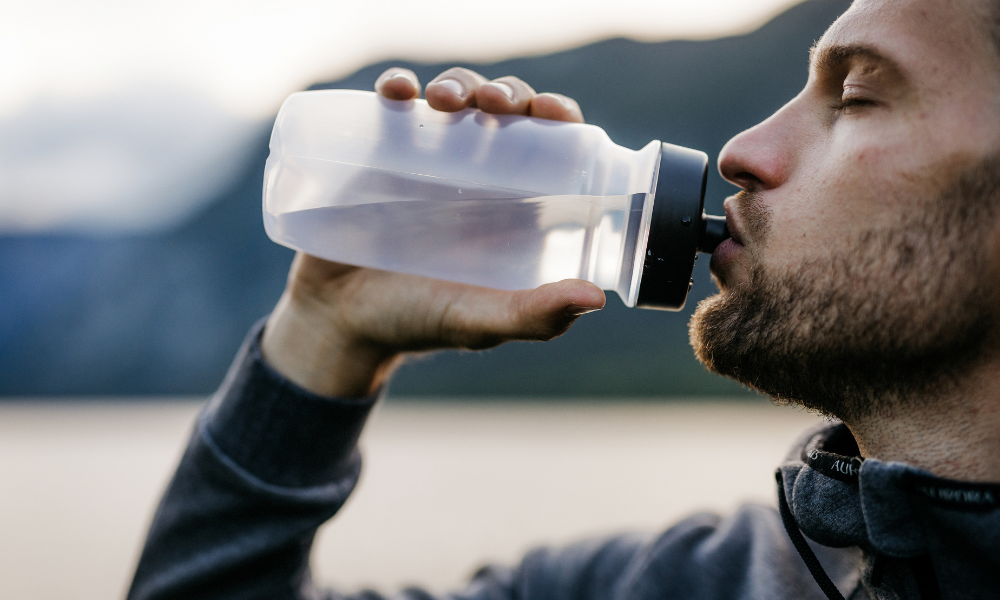
Why Salt is a Game-Changer for Athletes
Share
When you think about boosting athletic performance, your mind probably jumps to protein shakes, carbs, or even fancy supplements. But there’s one unsung hero that’s often overlooked: salt. Yep, that simple ingredient sitting on your kitchen counter could be the key to better workouts, faster recovery, and improved endurance. Let’s dive into why salt is a must-have for athletes.
Why Athletes Need Salt
Salt isn’t just something you sprinkle on fries. For athletes, it’s a powerhouse that helps keep your body running like a well-oiled machine. Here’s how:
1. It Keeps You Hydrated
-
When you sweat, you lose more than just water—you’re losing sodium too.
-
Sodium helps your body hold onto water, which means staying hydrated longer and avoiding that dreaded mid-workout crash.
2. It Supports Muscle Function
-
Ever had muscle cramps during or after a workout? Low sodium might be the culprit.
-
Sodium is essential for proper muscle contractions and keeping your nerves firing on all cylinders.
3. It Helps You Go the Distance
-
Sodium keeps your energy up during long workouts or competitions.
-
Plus, it speeds up recovery by helping your body absorb nutrients and fluids more efficiently.
What Happens When You Don’t Get Enough Salt?
If you’re not replenishing your sodium levels, things can go south fast. Here’s what to watch out for:
-
Muscle cramps that stop you in your tracks.
-
Feeling lightheaded or dizzy.
-
Low energy and endurance.
-
In extreme cases, hyponatremia (dangerously low sodium levels), especially if you’re drinking tons of water without replacing electrolytes.
How Much Salt Do Athletes Really Need?
The answer isn’t one-size-fits-all. It depends on things like:
-
How much you sweat: Some people naturally lose more salt when they sweat.
-
Your activity level: The harder and longer you work out, the more salt you’ll need.
-
The weather: Hot, humid conditions mean more sweat (and more sodium loss).
On average, athletes might need anywhere from 3,000 to 5,000 mg of sodium a day, or even more during intense training. Not sure what’s right for you? A sports nutritionist can help you figure it out.
Easy Ways to Get More Salt
Adding salt to your diet doesn’t have to mean eating a bag of chips (though, let’s be honest, that does sound tempting). Here are some athlete-friendly options:
1. Drink Electrolyte-Rich Beverages
-
Look for sports drinks with sodium and other electrolytes like potassium and magnesium.
-
Avoid the sugary ones—they’re not doing you any favors.
2. Eat Salty Snacks
-
Pickles, olives, and salted nuts are all great choices.
-
Or just sprinkle a little sea salt on your meals.
3. Try Hydration Powders
-
These are super convenient and often packed with the sodium you need.
4. DIY Electrolyte Drinks
-
Mix water, a pinch of salt, and a splash of citrus juice for a simple, natural boost.
When to Add Salt for Maximum Benefits
Timing is everything when it comes to salt:
-
Before Your Workout: A little sodium beforehand can help you start hydrated.
-
During Long Workouts: Keep those sodium levels up, especially if you’re sweating buckets.
-
After Your Workout: Replenish what you lost to recover faster and feel better.
Busting Myths About Salt
“Salt Makes You Dehydrated”
Actually, sodium helps your body retain water, which is exactly what you need to stay hydrated during exercise.
“Athletes Should Avoid Salt”
If you’re sitting on the couch all day, sure, too much salt isn’t great. But if you’re active, your body needs it to perform at its best.
Final Thoughts
Salt isn’t just a seasoning—it’s a game-changer for athletes. Whether you’re hitting the gym, training for a marathon, or just trying to stay active, sodium can help you hydrate better, recover faster, and perform longer. So, next time you’re prepping for a workout, don’t forget the salt! Your body will thank you for it.
